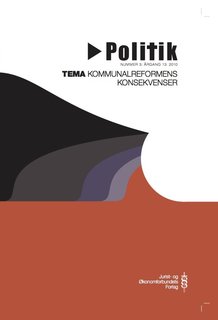Regeringsautonomi og delegeringstab i dansk EU-politik: Et principal-agent teoretisk perspektiv
DOI:
https://doi.org/10.7146/politik.v13i3.27458Resumé
Where do states’ positions on EU-integration come from? Despite a large number of studies we simply do not know which factors determine states’ positions in specific cases and why. This article analyses position making between ‘governments’ and ‘parliaments’ during the Maastricht Treaty negotiations. Furthermore, an analysis of the role of information asymmetries as intermediating factors in generating ‘influence on position’ will be carried out. The question asked is: Do governments enjoy relative autonomy vis-à-vis the Folketing that enables them to develop ‘positions’ they feel are in ‘the national interest’ or is Parliament able to control government behavior? The conclusions indicate that Parliaments control governmental positions, but also that governments, are able to exploit the negotiations to pursue certain ‘policy drifts’. The research design used is an in-dept single case study that analyses the level of inFluence on a multitude of different issues varied over the conflict level between the actors.
Downloads
Publiceret
Citation/Eksport
Nummer
Sektion
Licens
Forfattere, der publicerer deres værker via dette tidsskrift, accepterer følgende vilkår:
- Forfattere bevarer deres ophavsret og giver tidsskriftet ret til første publicering, samtidigt med at værket er omfattet af en Creative Commons Attribution-licens, der giver andre ret til at dele værket med en anerkendelse af værkets forfatter og første publicering i nærværende tidsskrift.
- Forfattere kan indgå flere separate kontraktlige aftaler om ikke-eksklusiv distribution af tidsskriftets publicerede version af værket (f.eks. sende det til et institutionslager eller udgive det i en bog), med en anerkendelse af værkets første publicering i nærværende tidsskrift.
- Forfattere har ret til og opfordres til at publicere deres værker online (f.eks. i institutionslagre eller på deres websted) forud for og under manuskriptprocessen, da dette kan føre til produktive udvekslinger, samt tidligere og større citater fra publicerede værker (se The Effect of Open Access).

